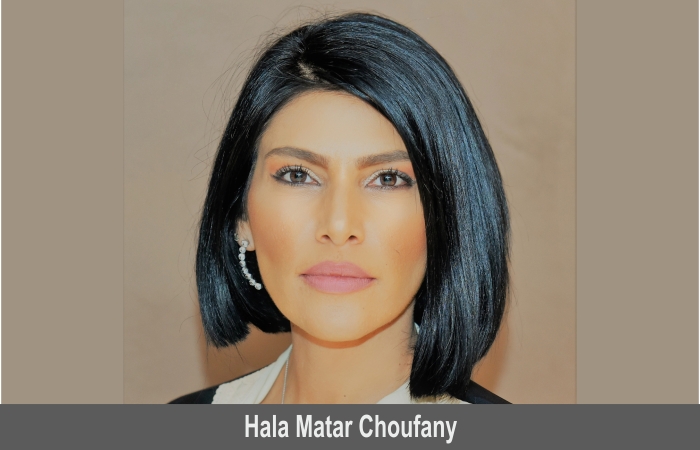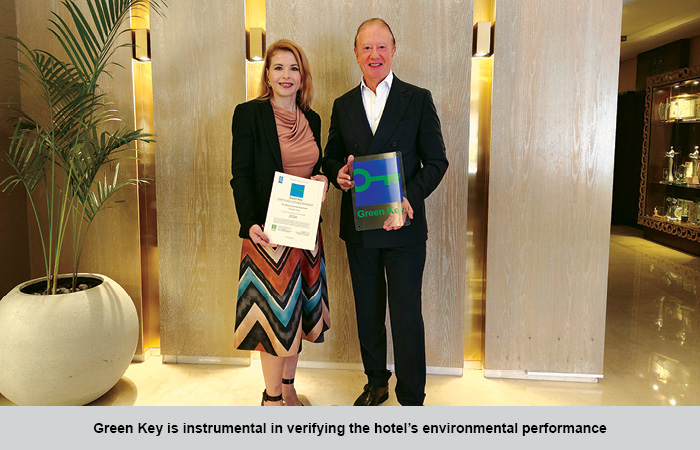Director DDPPL SanJeet conducted an insightful discussion on redesigning hospitality with a world renowned expert from HVS, Hala Matar Choufany, President HVS Middle East, Africa and South Asia and Managing Partner HVS Dubai at the Gulf Travel Show.
Q Could you tell us what’s happening around in the industry?
Hala Matar Choufany – I guess at the moment we are trying to understand timing, the impact, not necessarily current impact, but the prolonged impact and what is it that ultimately we could do in order to save that industry.
When I go actually back in April, when I first tried to look at the recovery model and I had put some forecast based on really looking at demand dynamics, demand generators, what the different governments at this part of the world were looking to do. I had come up with, again, not claiming that I know the answer, but I did feel like it may take us well into 2024/2025 to recover. As investors, as developers, we can plan accordingly.
Q What are the current hospitality trends in the region?
Hala Matar Choufany – I personally think when we start, perhaps at the global level, what we are currently facing in terms of trends or impact is very much on par when I speak to my counterparts, whether in the Americas or Europe or elsewhere in Asia. When we start looking at the regional differences, one thing is definite, I wouldn’t call it a trend, but a segment that has emerged really strong is domestic tourism. This is a very important trend that perhaps in this part of the world, we never looked after sufficiently, specifically in the GCC, the focus has always been on the international market. In the Middle East, we have seen suddenly domestic tourism really provide a lot of room nights in Saudi Arabia.
The extent of room nights, where they didn’t actually have sufficient supply to provide for these room nights, and that is homegrown, reliable source of business. My personal view also is that Saudi in general, they realized that this is a market. It’s a substantial market. People couldn’t travel out but they did travel within the country and that has supported their tourism. In this part of the word, I personally think there’s going to be in the future, more focus on how to create domestic tourism that may not necessarily mean just within the country, but more so within that region specifically, how can we package it? So that is leisure related predominantly, but more so from the domestic standpoint. That’s one of the trends that I would see becoming more important and we’ll definitely also have to call on government support. So it’s not really down to hotels. It is a trend that I definitely think should be capitalised.
The second trend that we’ve observed is those resort hotels, whether it be called adventure, remote or exclusive; we can decide on the terminology, the idea been that it’s more exclusive, much smaller. You’re not in your traditional hotel with a thousand check-ins and out, but rather you are somewhere remote; resorts are able to offer these facilities and are still running to date with 90% occupancy. Actually they have naturally been transformed into people, just checking in for two weeks and getting away. That is also a trend that personally, I think will continue because this is what the new generation also would look to actually book and stay.
Another trend we’ve seen in the last five years is the incorporation of the culture into that experience. We have seen the rise in people taking trips where they really want to experience and be part of the country.
Q What’s happening in the business hotels in cities? What’s going to happen in terms of pricing? If costs come down will the profitability come down or how does the system work?
Hala Matar Choufany – In the GCC specifically, we have seen that despite the ability of the governments and the major airline to induce additional travel segments and bring in the business that rate generally speaking has been declining one on account of oversupply, but also because there is much more affordable accommodation. Gone are the days when the hotels could dictate any rate.
 TravTalk Middle East Online Magazine
TravTalk Middle East Online Magazine





